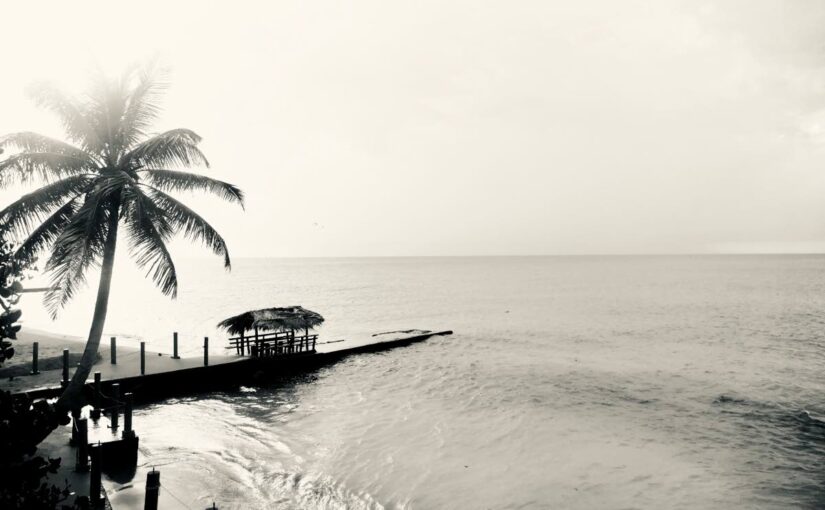GOVERNMENT senator Laurence Hislop has said the best path towards greater autonomy in Tobago is a "step-by-step" approach. Hislop was speaking in an...
Vous n'êtes pas connecté
- English
- Français
- عربي
- Español
- Deutsch
- Português
- русский язык
- Català
- Italiano
- Nederlands, Vlaams
- Norsk
- فارسی
- বাংলা
- اردو
- Azərbaycan dili
- Bahasa Indonesia
- Հայերեն
- Ελληνικά
- Bosanski jezik
- українська мова
- Íslenska
- Türkmen, Түркмен
- Türkçe
- Shqip
- Eesti keel
- magyar
- Қазақ тілі
- Kalaallisut ; kalaallit oqaasii
- Lietuvių kalba
- Latviešu valoda
- македонски јазик
- Монгол
- Bahasa Melayu ; بهاس ملايو
- ဗမာစာ
- Slovenščina
- тоҷикӣ ; toğikī ; تاجیکی
- ไทย
- O'zbek ; Ўзбек ; أۇزبېك
- Tiếng Việt
- ភាសាខ្មែរ
- རྫོང་ཁ
- Soomaaliga ; af Soomaali
Rubriques :
 Maroc - NEWSDAY.CO.TT - A la Une - 12/Sep 07:39
Maroc - NEWSDAY.CO.TT - A la Une - 12/Sep 07:39
Confederation and Tobago Constitution, 1876-1885
Dr Rita Pemberton THE YEAR 1876 was an important year for Tobago because of two significant events within weeks of each other which had implications for the island’s constitution. On April 17, in Barbados, a major riot, which embroiled all the parishes on the island and threatened the capital, broke out, and on May 1 the Belmanna War occurred in Tobago. In both instances discontent, stimulated by poor living conditions, low wages, unemployment and the continual exploitation by the ruling class, aggrieved a population which occupied the levels at the base of the society. The outcome in both cases was related to the larger issue of imperial policy in the region. The imperial government had long been concerned about the administration of its Caribbean possessions, which were administered under the Old Representative System. The relationship between the imperial government and the local assemblies had been marked by constant contests, at the base of which was the refusal of the assemblies to submit to the imperial government on issues they considered critical to their operations in the colonies. They refused to accept the notion that their authority stemmed from a grant from the imperial government, and they argued that it was their birthright. Ugly contests were raised when the assemblies did not obtain the support of the imperial government for policies they wished to pursue. Since the assemblies held power of the purse, their approval was required for all expenditure which pertained to the colony. When the members of the assembly became annoyed with the imperial authorities, they would take reprisal by refusing to vote supplies, making it impossible for the salaries of officials, including governors, to be paid. This strategy embarrassed the imperial government so often that it sought ways to circumvent the problem. The Tobago Assembly, which came under the influence of powerful attorneys who administered several absentee-owned estates, was in constant conflict with the governors and the imperial administration. When the island did not receive support from the imperial government in times of economic hardship, the assembly refused to co-operate with the governor, refused to vote supplies and reduced the salaries of governors and other officials. To avoid these difficulties, the imperial government decided to terminate the Old Representative System and implement direct rule of its new acquisitions as crown colonies. This policy was applied to Trinidad and St Lucia in 1815. The long-term plan of the British officials was to extend the system to the older colonies, but rather than risk the confrontation such an approach would cause, their strategy was to use the opportunity provided by internal social combustion in their favour. The social and economic conditions of the post-Emancipation Caribbean provided fertile ground for social explosions such as the one that occurred in Morant Bay, Jamaica, on October 11, 1865. The fear-gripped local authorities were overwhelmed by the upsurge of protests, which were used as an example of the risks such explosions offered for the establishment of undesirable black rule. The imperial power offered an alternative, crown rule, which, it said, would represent the interests of all the groups on the island. The Jamaican assembly acquiesced, and Jamaica was made a crown colony. This set the pattern for the rest of the British Caribbean, for the Crown intended to impose crown-colony government for all its Caribbean possessions. Meanwhile, during the latter half of the 19th century, the British government sought to deal with the impoverished colonies which were unable to even meet the costs of their administration. It was firm in its decision not to bail out colonies which could not generate a profit. Tobago was one such. The sugar industry was virtually dead, and the island’s economy was in shambles; there were constant requests for financial assistance from the imperial government to assist the ailing island. The imperial solution was to align it with other units in the region. The British government proposed a confederation of Barbados at the centre of an administration which included the Windward Islands, Grenada, St Vincent and St Lucia, with shared resources and opportunities for migration, which the working class welcomed, but which the Barbadian elite resisted. The workers launched a rebellion, in response to the planters’ plan to block the confederation, against the ruling oligarchy, which lasted ten days before it was put down by the military. The planter elite retained its power. Barbados didn’t lose its assembly, and crown-colony government was not instituted there. After the Belmanna War, the Tobago Assembly was convinced of the likelihood of political ascendency of a black and coloured elite. It continued the path established in 1874 with the establishment of a single-chamber entity and voted to surrender the remainder of its powers and implement crown-colony government in 1876. After the riots ended, the imperial government established a commission to examine the finances of its Caribbean colonies. The commission recommended a federal government of Grenada, St Vincent, St Lucia and Tobago, with the centre of government in Grenada. This plan stimulated waves of strong opposition from all the islands. From Tobago there was loud protest. The smaller planters were concerned about further deprivation of the opportunity to participate in managing the island’s affairs. They felt that as the smallest unit in the group, Tobago would have fewer votes and as a result, less power and influence than the other members. Some large planters who regretted supporting the reduction of the power of the assembly in 1874, also opposed the proposed federation. They dubbed it expensive, claimed it would not be in the best interests of Tobago and called, in vain, for a restoration of representative government. Because of the opposition from all the parties involved, the British government had to shelve the confederation plan. However, it remained unwavering in its attempts to deal with the Tobago problem by shifting the responsibility from its own shoulders in order to avoid having to make any financial outlay to rescue the island. Instead, it used its officials to win support for association with a larger territory. The confederation issue affected Tobago’s constitution, for when that policy failed, the pervading sentiment on the island did not favour unification. But there was one option left, and the island was destined to become part of a unified colony. The post Confederation and Tobago Constitution, 1876-1885 appeared first on Trinidad and Tobago Newsday.
Articles similaires
Britain faces growing calls to open door to slavery reparations
Britain is facing growing calls to open the door to reparatory justice for its role in the transatlantic slave trade. It peaked in the 1700s and saw...
Going beyond
Every place in the world is "a destination" that someone might want to visit for one reason or another. Usually, locals do not view their space in...
Attz: Trump presidency could impact Trinidad and Tobago in different ways
ECONOMIST Dr Marlene Attz said a Donald Trump presidency will likely have mixed effects on Trinidad and Tobago's economy – several positive and...
Government presses ahead with full Caricom membership
The Government is pushing ahead with plans for the island to become a full member of the Caribbean Community — almost a year after unveiling the...
19 States vs EFCC: 5,000 Lawyers Back Govs
A historic lawsuit filed by 19 state governors challenging the constitutionality of the Economic and Financial Crimes Commission (EFCC) has gained the...
Young: Government’s pursuit of oil polluters is right thing to do
ENERGY Minister Stuart Young was unfazed by attorney Nyree Alfonso's assertion that money from the potential sale of the tugboat Solo Creed would not...
Snap school poll: Youth want to leave Trinidad and Tobago
IN a school hall filled with 200 pupils, about half of them indicated they wished to leave Trinidad and Tobago to study, and of these only one said...
Rhythm, Steel and Powder unifies Tobago, tourism minister lauds October carnival
MATURE patrons who attended Pan Trinbago’s Rhythm, Steel and Powder in Tobago on October 26 were taken on sentimental journey to an era when the...
Browne unfazed by push-back on reparations
DR AMERY BROWNE, Minister of Foreign and Caricom Affairs, is undaunted by the negative signals coming from the United Kingdom regarding calls by...
Les derniers communiqués
-
Aucun élément








